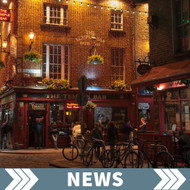A Fresh Pour for Pubs – But What About the Rest of Hospitality?
Posted by Emma on 28th Jul 2025 Reading Time:
As the government unveils new plans to rejuvenate Britain’s high streets, a wave of optimism has greeted proposals aimed at easing licensing laws, streamlining planning rules, and protecting cherished aspects of British life, such as the humble pavement pint. But amid the headlines, a quieter question lingers: How broadly will this support reach across the diverse hospitality sector?
A New Chapter for Pubs and Cafés
The Chancellor, Rachel Reeves, and Business Secretary, Jonathan Reynolds, have outlined a vision to breathe new life into the nation’s high streets through the creation of “hospitality zones.” These dedicated areas will benefit from:
- Fast-tracked permissions for al fresco dining, street parties, and longer opening hours;
- Simplified planning rules to allow the conversion of disused shops into pubs, bars, cafés and music venues;
- And new soundproofing requirements for developers building near nightlife venues, aiming to shield existing sites from noise complaints.
Framed as part of a broader “Plan for Change,” these reforms aim to strip away bureaucracy and encourage local business growth, social vitality, and investment in town centres.

Reeves called for an end to “clunky, outdated rules,” while Reynolds pledged to “make Britain fun again” and replace shuttered shops with vibrant social spaces.
A Warm Welcome—With a Cautious Note
Many industry voices have responded positively. Kate Nicholls, Chief Executive of UKHospitality, described the measures as “encouraging and positive,” though she warned that they do not fully address the deeper, structural challenges facing the sector.
High taxes, rising energy bills, and ongoing regulatory pressures continue to put strain on hospitality businesses. The British Beer and Pub Association (BBPA) has forecasted the closure of more than one pub per day in 2025, resulting in over 5,000 job losses. Prominent names, such as Brewdog, have already announced venue closures, citing mounting costs and economic pressures.
Calls for further reform—particularly on business rates and tax relief—are growing louder ahead of the Autumn Budget.
A Moment for Reflection: Who Falls Under ‘Hospitality’?
While these proposals are geared toward revitalising the traditional heart of hospitality—pubs, bars, cafés, and restaurants—some industry observers are gently questioning the scope. Do takeaway businesses and fast food operators fall within the same umbrella of support? And if not now, might they be included in future planning?
These businesses are no less vital to the high street. They feed communities efficiently, employ thousands, and offer an affordable option in a tightening economy. Their omission from policy discussions may not be intentional, but it is noticeable.
This moment of reform could be an opportunity to acknowledge and include the full spectrum of food and drink businesses that form the UK’s rich hospitality landscape.

Final Thoughts
The government’s renewed focus on hospitality is both welcome and overdue. Easing planning rules, encouraging outdoor social spaces, and protecting pubs from unjustified complaints are meaningful steps forward.
But as the call for evidence gets underway, it may be worth broadening the conversation. Hospitality is not one-size-fits-all, and in the race to revitalise the high street, inclusivity matters.
After all, the high street is not just where we go to drink or dine—it’s where we live, work, and gather. And every business that supports that deserves a seat at the table.



